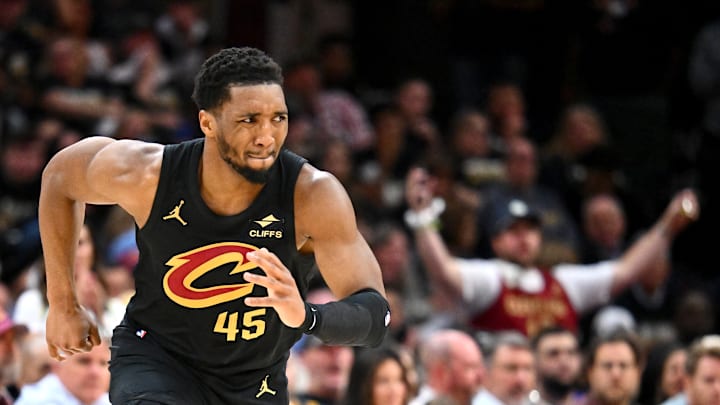A few years ago, a mainstream NBA podcast was ranking the league's shooting guards. They placed Donovan Mitchell, newly on the Cleveland Cavaliers, in Tier 1 along with Devin Booker. Yet ultimately Mitchell was placed at No. 2, with Booker in the top spot. The reasoning? That Mitchell was the size of a point guard but not a good enough ball-handler and playmaker to play high-level offense without another point guard next to him.
For all that Mitchell has continued to grow and develop as a player, this year's playoff disaster is further proof of how prescient that analysis was. With Darius Garland injured and Ty Jerome turning back into a pumpkin, Mitchell was tasked with running the offense in the second round against the Indiana Pacers.
Donovan Mitchell failed as a point guard
He failed miserably. Yes, he was able to score in bunches, but it took him a lot of shots to reach that production. Laboring through injuries of his own, Mitchell was worn down by the Pacers' defensive pressure, unable to sustain the task of bringing the ball up, initiating the offense, setting up teammates and calling his own number. He leaned into the herculean scoring, and the Cavs' offense sputtered as a result.
Darius Garland returned in Game 3 and looked close to his normal self, but he progressively aggravated his toe injury until he was a shell of himself in Games 4 and 5. Yet in that one game with a somewhat normal Garland, Mitchell was transcendant. He thrives next to another lead guard to initiate the offense -- whether that was Mike Conley with the Utah Jazz or Garland in The Land.
The problem is that Mitchell is hardly an elite defensive force in the backcourt. This is not Anthony Edwards playing next to Conley now in Minnesota, or Kobe Bryant playing next to Derek Fisher with the Los Angeles Lakers.
Fisher is an intriguing comparison, actually, because he was the platonic ideal of what Mitchell needs beside him: a guard who can run the offense, hit 3-pointers and play rugged on-ball defense. Garland is a turnstile on defense, for as hard as he tries, and playing him next to Mitchell puts a colossal amount of stress on the rest of the lineup.
If Mitchell were a better on-ball dribbler and passer, he could play point guard next to a wing who can defend and knock down shots; that sort of player is not necessarily easy to find, but findable. If he were a better defender, the pairing with an offense-first guard like Garland would be sublime.
Instead, Mitchell is an explosive scorer who can reach heights few in NBA playoff history can claim. At the same time, his deficiencies as a defender and orchestrator put real team-building limitations on a franchise. When Mitchell and Garland were both healthy the offense hummed, but the defense wobbled. They can run it back, but that may take a season merely to prove what already looks to be the case.
When you add in Mitchell's nagging injuries that he sustains each year in the playoffs you get a mix that will limit the ceiling of the Cleveland Cavaliers for as long as he is on the team. Perhaps they can thread the needle, finding the right backcourt partner for Mitchell. Perhaps Garland rises to the occasion and a healthy Cleveland team runs it back.
Or perhaps the flaws are too systemic and too great to be overcome. In that case, 64 wins and a playoff flameout will be par for the course. That may be too bitter a pill for this franchise to swallow.
